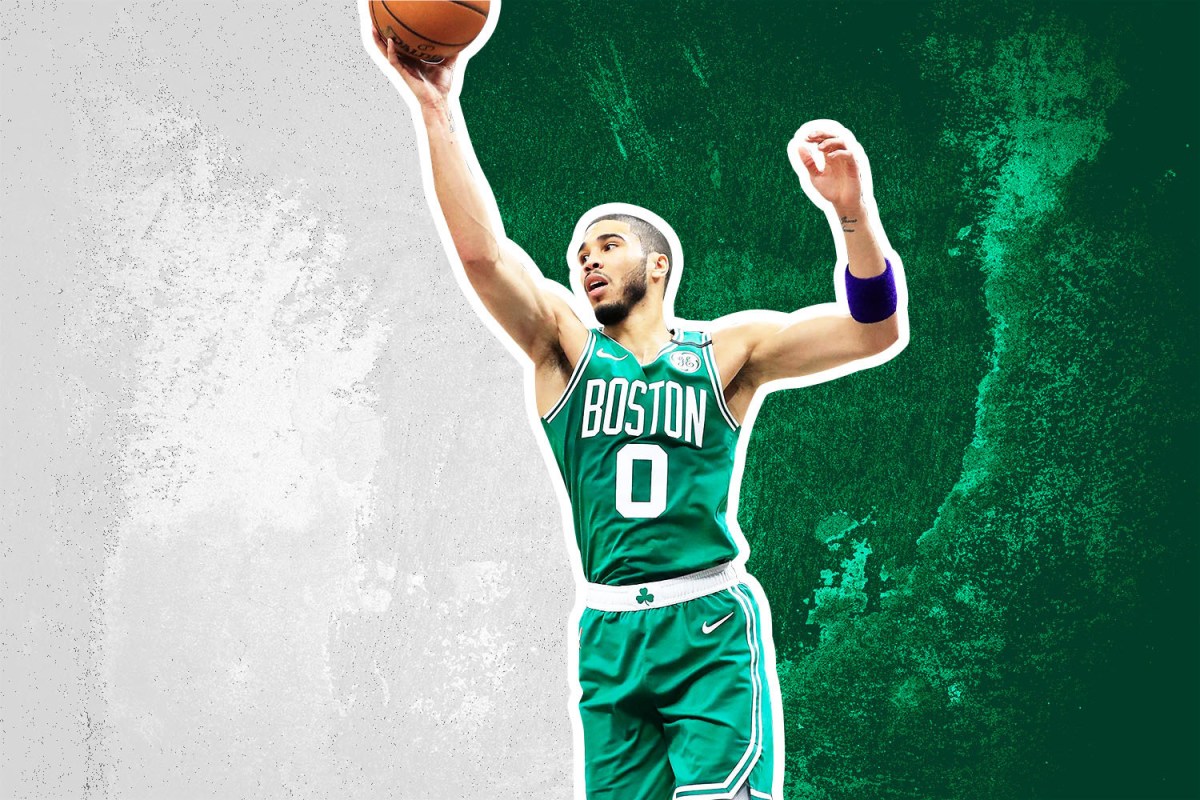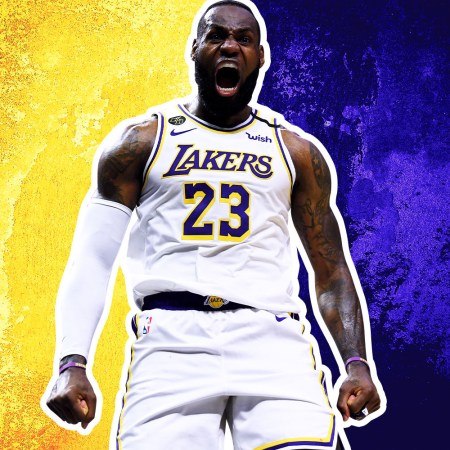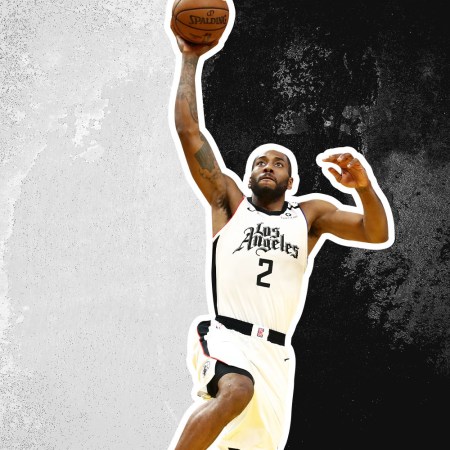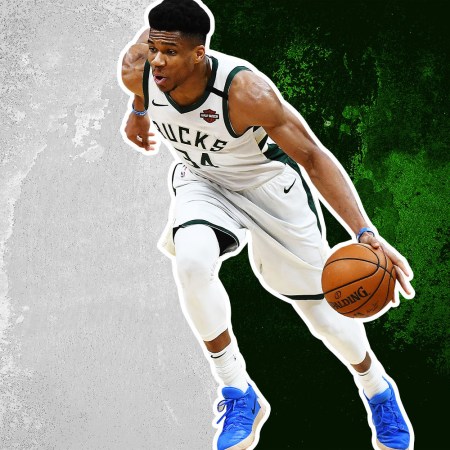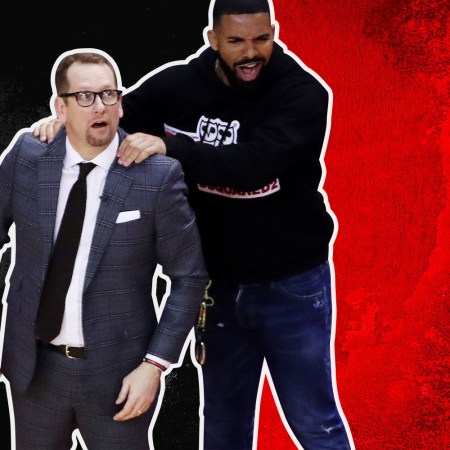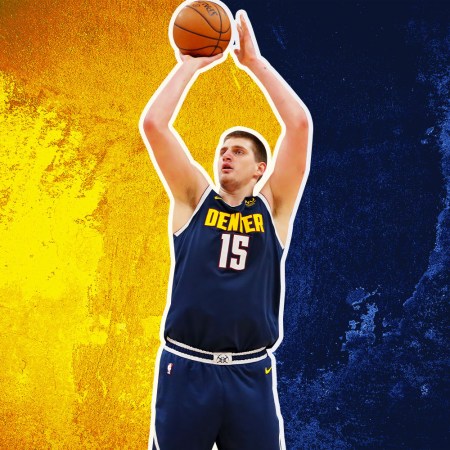Over the next three weeks, we’ll be preparing for the NBA’s long-awaited restart by attempting to answer the single most important question facing every franchise that will be present and accounted for in Orlando. This is 22 Questions.
Across all sports, Boston teams are a natural villain, in large part because they’ve won a bunch of titles and spent most of the last 20 years ruining everybody’s fun. This isn’t a secret — you know Patriots fans. You’ve been on the internet. When the NBA season stopped, two teams ranked in the top five in both offensive and defensive rating: the Los Angeles Clippers and the Boston Celtics. The Celtics are invariably strong across the board: they’re 43-22, good for a 67.2% winning percentage that’s currently the NBA’s fifth highest. They are careful with the ball (sixth lowest turnover rate), yet force their opponents to cough it up (fourth highest). They take easier shots than they allow, posting the 13th best location-adjusted effective field-goal percentage and herding opposing offenses into the eighth least fertile, according to Cleaning the Glass. Despite this all-around goodness, they’re hardly loathsome at all, but rather the best and only spark of excitement and hope that any Eastern Conference team can challenge the Milwaukee Bucks.
Coming into the season, the Celtics’ main goal appeared to be forgetting about last year, when they won 67 glorious games, were up 30 in a lot of them and did lots of high-fives underperformed their talent level and flamed out in the second round. With Kyrie Irving and Al Horford both leaving Boston last summer (to go to divisional rivals, no less), this season was supposed to be a transitional one while Jayson Tatum, Jaylen Brown and Kemba Walker found their sea legs as the new fulcrums of the Celtics. Instead, the Celtics improved on both ends. The defense became increasingly stingy without Irving, while head coach Brad Stevens reimplemented the kind of egalitarian offense that’s earned him the deserved reputation as a master tactician. At the center of everything were Walker, Brown and Tatum, only the third trio in NBA history to average more than 20 points each per game.
Although Walker is not as good at playing basketball as Irving, he’s way better to play basketball with. Whereas Irving grinds down possessions and dribbles himself to enlightenment, Walker plays with snap and pace. For years, Walker has been one of the preeminent pick-and-roll operators and pull-up three-point shooters in basketball; this year has been no different, with Walker knocking down more pull-up threes than any other Eastern Conference player in the bubble and ranking in the 94th percentile as a pick-and-roll ball-handler. Walker’s ability to hit contested threes off the dribble — and his resultant gravity, which is in the 99th percentile, per Basketball Index — stresses defenders, cajoling them into recklessness. As such, Walker presents his opposition with a maddening dilemma: they can either let Walker do his thing and bury them or commit to stopping him and watch other Celtics slip into the open space that Walker creates.
Alongside Walker, Jaylon Brown played at an All-Star level for the first time of his career. He still doesn’t have the passing ability to propel an offense on his own, but he’s an all-terrain scorer who can fill whatever need Boston has. In his fourth season, the 23-year-old Brown has sharpened his dribbling ability and punishes overzealous closeouts as a result. Each year, Brown has added to his game, transforming from a raw athlete in his rookie year to a player who ranks above average to great as a scorer in nearly just about everything. Synergy Sports tracks 11 distinct play types; Brown scores at an above-average clip in 10 of them.
Walker and Brown are nice players with the potential to be more, but Tatum is the true determinant of who and what the Celtics will become. Depending on your perspective, Tatum is either our future overlord or a Tobias Harris doppelganger who’s been overhyped by the Boston Media Mafia on the strength of one good month. To Tatum’s credit, when he looks the part, he really looks the part. After a listless sophomore season that was possibly sabotaged by Kobe Bryant, Tatum has now made good on the promise he showed as a rookie. Over the last 15 games of the season, there was arguably not a better scorer in basketball than Tatum, who averaged 29.5 points on 61.8 percent true shooting. Even as he put crooked numbers on the scoreboard, the most impressive thing about the 22-year-old was his newfound restraint. He has an uncanny ability to consume and create space. He’s long been a deadeye shooter, but now he uncorks — and, more crucially, drains — unassisted threes that he creates in all different ways. He pulls up off of screens against sagging centers in drop coverage; he side-steps; he steps back.
Attacking the rim, Tatum has established chemistry with center Daniel Theis (who, like my dog, has mastered the art of standing directly in people’s way), cleverly angling his drives so the German big man can pin defenders away from the play with semi-legal screens. Without an explosive first step or flashy handle, Tatum covers ground so casually that some defenders don’t even seem to realize how badly they’ve been beaten until it’s too late. Whether it’s a pump-fake, jab step or crossover, Tatum always somehow ends up cutting through the core of the defense with the outward urgency of a runway model. If a scorer like James Harden scores with the loudness and bombast of Reputation, then Tatum is hoops folklore, stripping down scoring to its most elemental movements.
To be sure, Tatum will still be a great player even if he returns to relative inefficiency. Thanks to his keen court sense and sturdy 6’8 frame, Tatum will probably make his debut on an All-Defense team and make repeat reservations there throughout his career. Nominally a power forward, he can ably guard just about every player, save for the burliest centers and the most slippery guards. What really shines, though, is his off-ball offense. The proliferation of shooting and off-ball movement across the NBA has made off-ball defense perhaps the most complicated and necessary skill for a player to have; it takes a village to raise a defensive rating. With Tatum, Brown and Marcus Smart, the Celtics have the best combination of perimeter stoppers in the league. More, these three have interlocking skillsets: Brown has the size and fluidity to handle dynamic wings; Smart, a joyous shit-stirrer, provides as much value as any 6’3 guard ever could; Tatum prowls away from the play, stalking the empty space, waiting to either pluck a skip-pass out of the air or step up to stonewall driving lanes. Tatum takes away the easy releases built into enemy offenses, while Brown and Smart turn hard tasks into impossible ones.
And yet there’s no guarantee that Tatum’s stardom is sustainable. Notably, the only major difference in Tatum’s game between his pretty-good first 44 games and his transcendent last 15 is that he made a lot more shots. While the idea that you become better at basketball when you make shots is stupidly obvious, Tatum’s profile and tendencies as a player were essentially unchanged beyond an uptick in usage rate and minutes per game; the most substantive difference Tatum made over the season’s last few weeks was that he upped his three-point rate while shooting less from mid-range; according to Cleaning the Glass, Tatum only launched mid-range shots on 27% of his overall attempts after February 3, compared to compared to 35% of them before then. But given Tatum’s volume, accuracy and free-throw rate over his breakout stretch, he still would’ve averaged 28.5 points with his shot distribution from earlier in the year. What’s more, a single, abnormal 15-game sample size is certainly not nothing, but it’s hardly predictive—nobody actually believes that Tatum will shoot 46.6% from deep forever. This isn’t to say that Tatum-mania was a flukey Linsanity sequel, but more that the road to the Hall of Fame is littered with stop-and-start hot streaks.
Still, it’s more fun to believe. Somehow this Celtics team has escaped their fundamental Boston-ness and remained likable, which almost feels like a backhanded compliment. Are the Celtics likeable or do they just feel harmless? For this year — and this year only — non-Massholes can cheer for the Celtics with a clean conscience, since the fanless NBA bubble has spared all of us from being subjected to the unwashed masses of 20,000 mush-mouthed wannabe Whalbergs canceling themselves. Last time Tatum was given the reins in the playoffs, he was a gutsy, appealing rookie who boomed LeBron James. Now it’s Tatum’s time to prove that he’s so unimpeachably good that it leaves no choice but to hate him.
Whether you’re looking to get into shape, or just get out of a funk, The Charge has got you covered. Sign up for our new wellness newsletter today.
